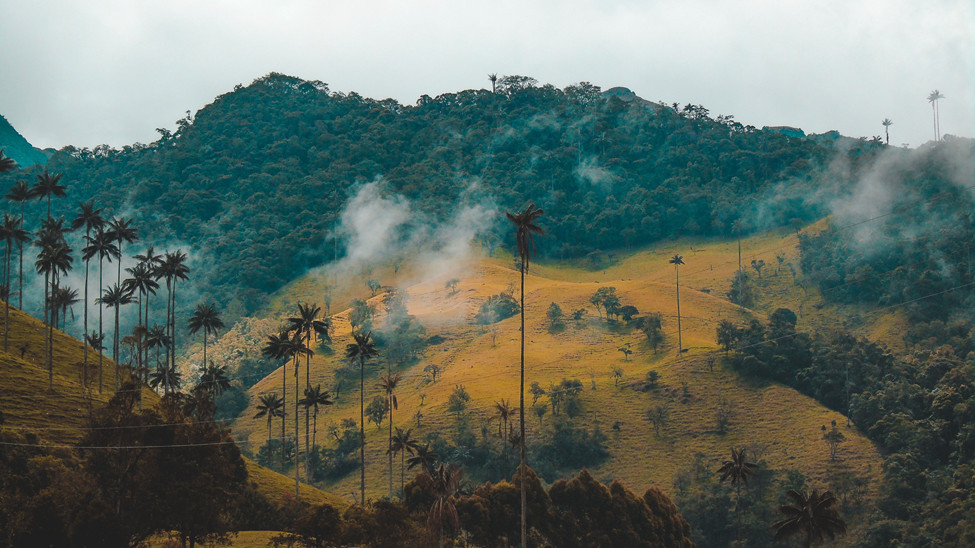Member Spotlight: Colombia
News / 14 May 2019
In Colombia, Earth observations are being ingrained into governance and policy processes to improve environmental resource management and mitigate disaster risk. A model for interagency engagement in GEO, Colombia is demonstrating how countries can take advantage of the GEO Work Programme to address their own priority challenges and advance inclusive and sustainable development.


According to the Institute of Hydrology, Meteorology and Environmental Studies (IDEAM) - GEO’s Principal agency in Colombia - Earth observations are being used to develop systems that improve environmental monitoring and mitigate risk across the country.
Examples of ongoing projects include efforts to improve land use monitoring by addressing a seven year gap in coverage, and refining forecasting models to generate more accurate early warning for geohazards including landslides and flooding. Colombia’s National Information System for Disaster Risk Management uses Earth observations to provide daily public alerts on disaster risk.
IDEAM is also creating a structured monitoring system for wetlands and high mountain ecosystems, Páramo, and croplands that improves understanding of natural resources, and feeds into ecosystem accounting and early warning systems. On the research side, Colombia is implementing Earth observation-supported studies related to sustainable urban development, public health monitoring and ecosystem-related impacts of climate change.
Building on their GEO membership and the offerings of the GEO Work Programme, Colombia is actively engaged in several initiatives and activities that are improving environmental management in the country.
Working with GEO’s Earth Observations for the Sustainable Development Goals initiative (EO4SDG), Colombia’s National Administrative Department of Statistics (DANE) conducted a successful pilot project using Earth observations to examine SDG 11, Indicator 11.3.1: Ratio of land consumption to population growth. Through this partnership DANE developed a method that incorporates freely available Landsat images with population data to analyse the relationship between land consumption and population growth in the Barranquilla Metropolitan Area in northern Colombia.


Also working with EO4SDG and GEO’s Global Forest Observation Initiative (GFOI), IDEAM has been using satellite data in their national forest monitoring efforts in support of the nationally-led Reducing Emissions from Deforestation and Forest Degradation (REDD+) effort.
Through the GEO Biodiversity Observation Network (GEO BON), BON-Colombia has created the BioModelos system to strengthen collaboration and networking for national biodiversity modelling and monitoring.
Also in collaboration with GEO BON partners, Colombia’s Alexander von Humboldt Institute has developed an essential biodiversity variable application for quantifying forest vertical structure using spaceborne lidar. By quantifying habitat structure, researchers can better predict habitat use for a range of animals and plant species diversity in a range of forest ecosystems.
In 2018, GEO’s Global Water Sustainability Initiative (GEOGLOWS) worked with the Colombian government to implement a Streamflow Forecasting Pilot that enables IDEAM to visualize water levels and historical data from their 200+ monitoring stations, in order to both assess ECWMF-based simulations and to more accurately identify areas at risk of flooding.
Colombia’s Rural Farm Planning Unit (UPRA) and the Colombian Corporation for Agricultural Research (Agrosavia) plan to develop their partnership with GEO’s Global Agricultural Monitoring Initiative (GEOGLAM) with the hiring of new staff, while the country’s Geological National Service has expressed interest in working more closely with GEO’s Geohazard Supersites and Natural Laboratories initiative (GSNL).
Colombia’s National Disaster Risk Management Unit (UNGRD) is also planning to offer new staff training on the International Disasters Charter and GEO’s Data Access for Risk Management initiative (GEO DARMA).
IDEAM plans to engage with GEO Wetlands as it develops new methods for monitoring Colombian wetlands this year. The agency will work with GEO Wetlands and GEO’s Global Network for Observations and Information in Mountain Environments (GEO-GNOME) to assess and monitor water sources in mountain ecosystems. This effort will be untaken in collaboration with CONDESAN, the Consortium for Sustainable Development in the Andean Ecological Region, and local agencies.
Finally, working with GEO’s partners in the global Open Data Cube community, IDEAM and the University of the Andes have established a national Data Cube and are using it to monitor forests and deforestation in the country. The partners have now implemented the first set of algorithms to process satellite imagery through the Data Cube, which consists of 25,000 Landsat scenes.
Colombia demonstrates the potential opportunity for other countries to take advantage of the many opportunities offered by GEO. By ensuring that all relevant national agencies are engaged in GEO and connected with the GEO Work Programme activities that offer data, tools and services that align with national priorities, Colombia and GEO are working together to drive progress on the country’s most important issues.
GEO invites all existing and prospective national governments to follow Colombia’s lead and ensure they are deriving maximum benefits from their GEO membership by contributing to and engaging with GEO and its many Work Programme initiatives and activities.
For more information please contact: Oscar Daniel Beltrán Rodríguez at odbeltran@ideam.gov.co.